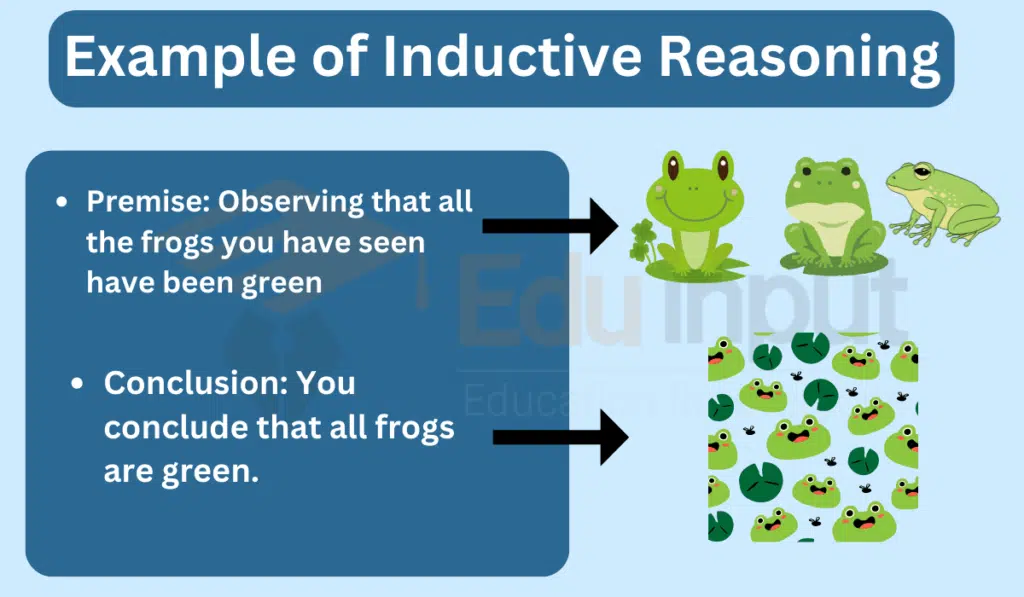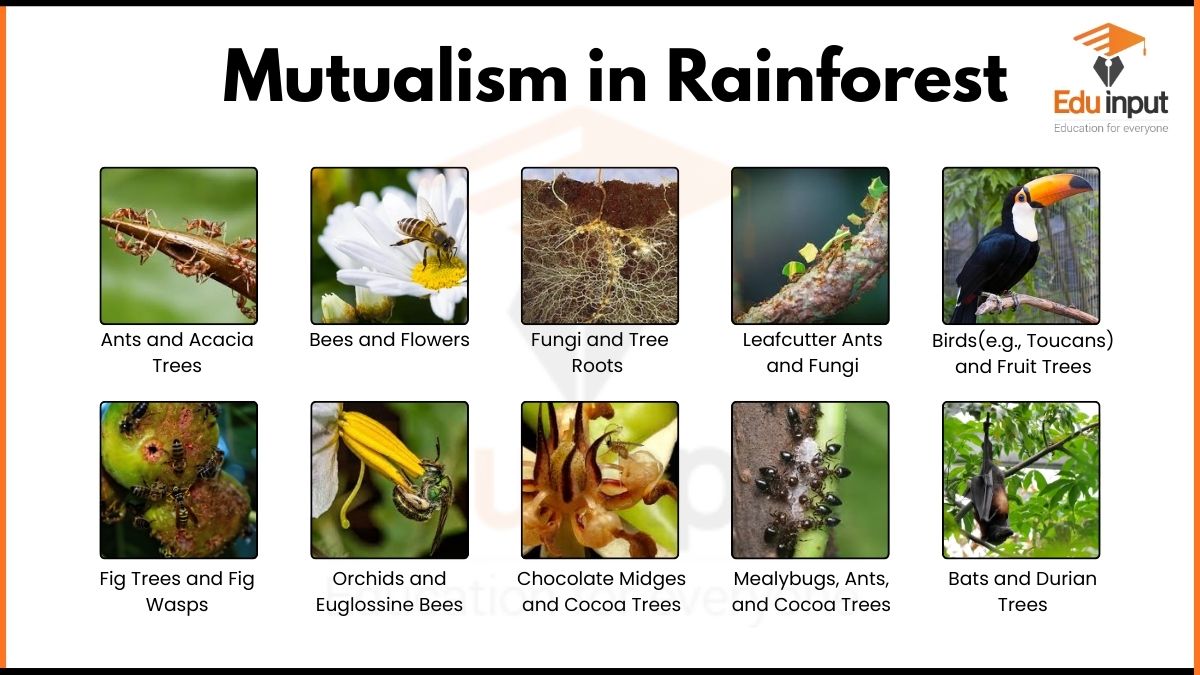5 Examples of Inductive Reasoning in Biological Method
Inductive reasoning is a method of reasoning in which a general conclusion is drawn from specific observations. It is the opposite of deductive reasoning, in which a specific conclusion is drawn from a general rule.
The conclusions drawn from inductive reasoning are always tentative and subject to revision in light of new evidence.

Also learn Examples of deductive Reasoning
Examples of Inductive Reasoning
Here are few examples of inductive reasoning in Biological method:
Example 1
Observing that all the frogs you have seen have been green, you conclude that all frogs are green.
This is an example of inductive reasoning because it is based on a limited number of observations (all the frogs you have seen).
However, the conclusion is not guaranteed to be true, as there may be frogs that are not green.
Example 2
A scientist studies the fossils of dinosaurs and finds that they all have feathers. She concludes that all dinosaurs had feathers.
This is another example of inductive reasoning. The scientist has observed a trend in the fossil record, and she is using this trend to make a generalization about all dinosaurs.
However, it is possible that there were some dinosaurs that did not have feathers.
Example 3
A biologist studies the DNA of different species of animals and finds that they are all closely related. She concludes that all life on Earth is descended from a common ancestor.
This is a more complex example of inductive reasoning. The biologist is using a large amount of data to make a generalization about all life on Earth.
However, it is possible that there is some life on Earth that is not descended from the same common ancestor.
Example 4
A doctor observes that many people who live in a particular area have a certain type of cancer. She concludes that there may be something in the environment that is causing this cancer.
This is an example of inductive reasoning in the context of medical research. The doctor is using her observations to make a hypothesis about the cause of a disease. However, she will need to conduct further research to confirm her hypothesis.
Example 5
A farmer observes that his crop yields are lower in years when there is less rainfall. He concludes that rainfall is an important factor in crop production.
This is an example of inductive reasoning in the context of agriculture. The farmer is using his observations to make a generalization about the relationship between rainfall and crop yield. However, he will need to conduct further research to confirm his conclusion.






Leave a Reply